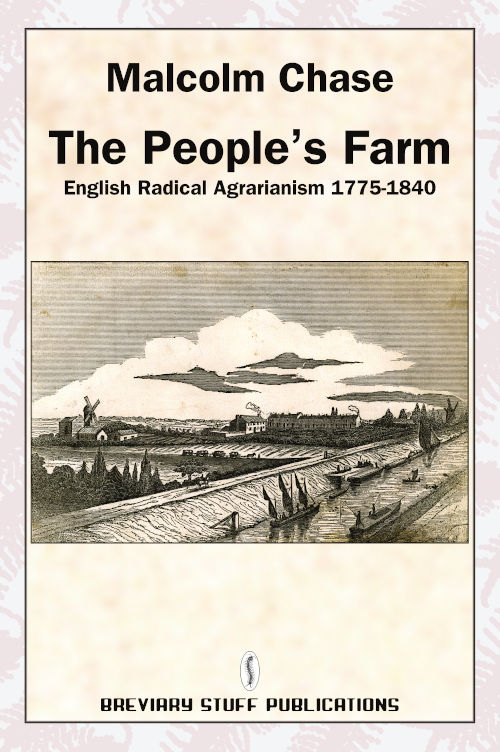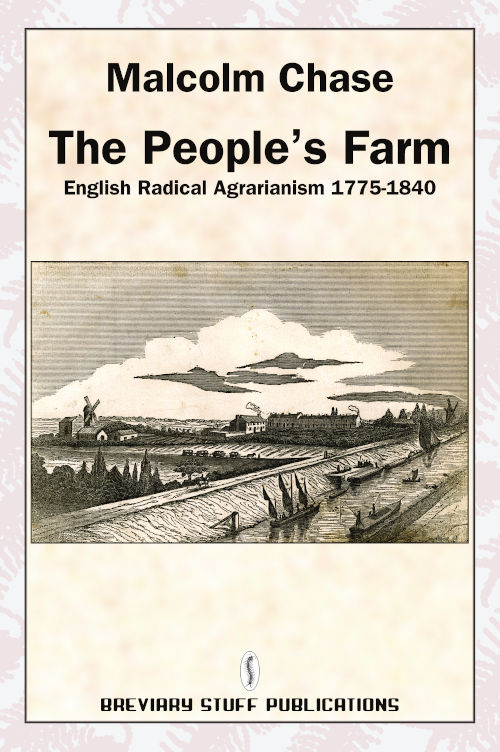- Preface (2010)
- 1. Agrarianism
- 2. Thomas Spence: Newcastle, 1750-1787
- 3. Spence in London, 1788-1814
- 4. Agrarians and Revolutionaries: Spencean Philanthropy, 1814-1820
- 5. Agrarian Ideals in Radical Politics: The 1820s and 1830s
- 6. Precepts in Practice
- 7. Designed for the Support of Mankind
- Bibliography
- Index
Malcolm Chase – The People’s Farm
English Radical Agrarianism 1775-1840
£12.00
This book traces the development of agrarian ideas from the 1770s through to Chartism, and seeks to explain why, in an era of industrialization and urban growth, land remained one of the major issues in popular politics. Malcolm Chase considers the relationship between ‘land consciousness’ and early socialism; attempts to create alternative communities; and contemporary perceptions of nature and the environment. He concludes that, far from being an anachronistic, utopian, and reactionary movement, agrarianism was an integral part of the working class experience and of radical politics. The People’s Farm also provides the most extensive study to date of Thomas Spence, and his followers the Spenceans. New light is thrown on the Spa Fields and Cato Street conspiracies, in which they were involved; but their true significance lies in their contribution to English radicalism — a key factor in shaping the politics of agrarian reform in the 1820s and 1840s.'Marvellous', John Belchem, Social History
'A significant contribution to our undersanding of radicalism in the period of the Industrial Revolution', Harry Dickinson, Times Higher Education Supplement
'An extremely carefully researched, well-written contribution to our knowledge of Spenceanism and affiliated strands in early nineteenth-century radicalism', Gregory Claeys, Labour History Review
'A most important and significant book', Keith Snell, Agricultural History Review
'Illuminates many areas of the history of labour and rescues a tradition which has too often been dismissed as pastoral and nostalgic', Dorothy Thompson, English Historical Review
'Illuminates many areas of the history of labour and rescues a tradition which has too often been dismissed as pastoral and nostalgic', Dorothy Thompson, English Historical Review





